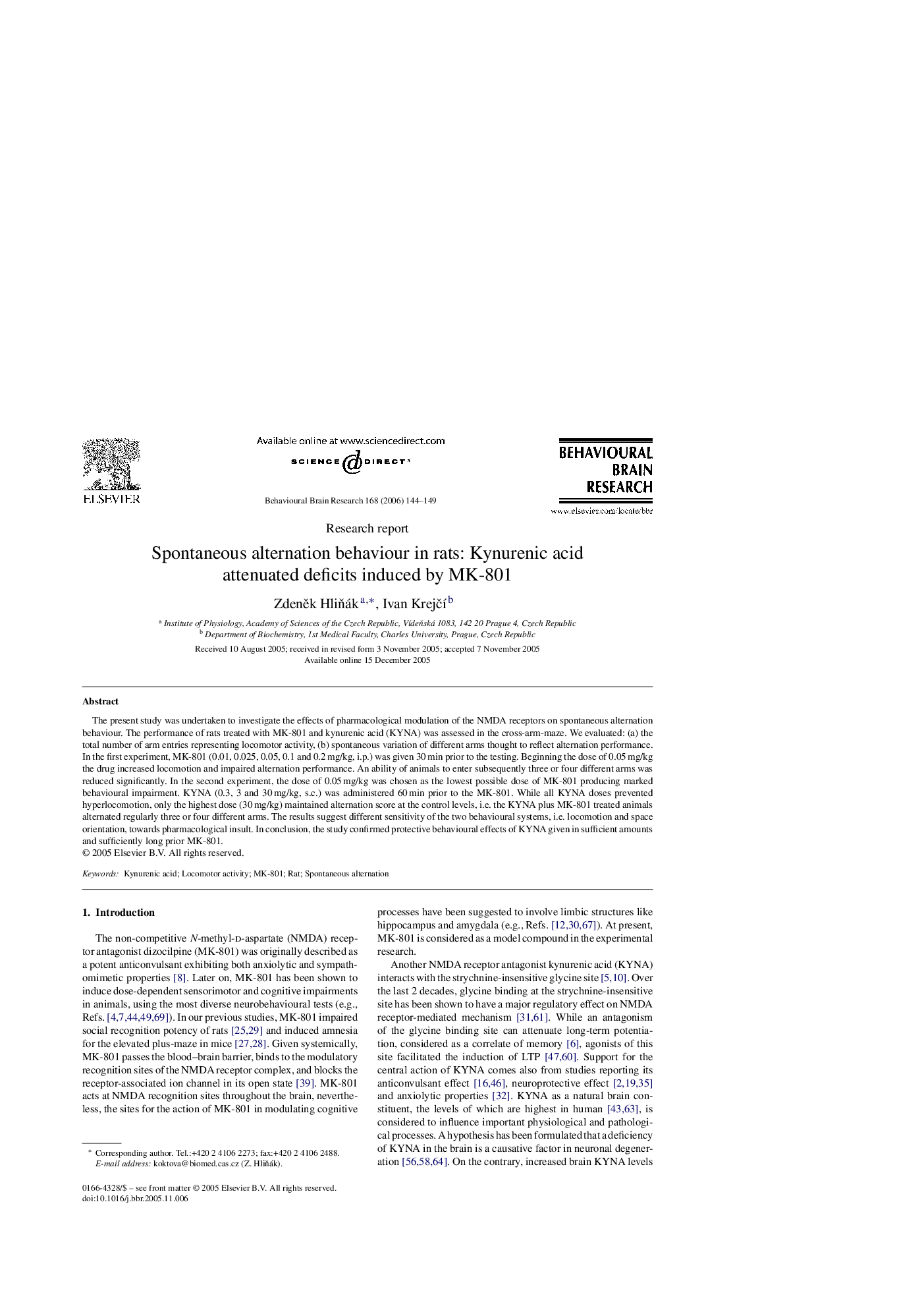| Article ID | Journal | Published Year | Pages | File Type |
|---|---|---|---|---|
| 4316153 | Behavioural Brain Research | 2006 | 6 Pages |
Abstract
The present study was undertaken to investigate the effects of pharmacological modulation of the NMDA receptors on spontaneous alternation behaviour. The performance of rats treated with MK-801 and kynurenic acid (KYNA) was assessed in the cross-arm-maze. We evaluated: (a) the total number of arm entries representing locomotor activity, (b) spontaneous variation of different arms thought to reflect alternation performance. In the first experiment, MK-801 (0.01, 0.025, 0.05, 0.1 and 0.2Â mg/kg, i.p.) was given 30Â min prior to the testing. Beginning the dose of 0.05Â mg/kg the drug increased locomotion and impaired alternation performance. An ability of animals to enter subsequently three or four different arms was reduced significantly. In the second experiment, the dose of 0.05Â mg/kg was chosen as the lowest possible dose of MK-801 producing marked behavioural impairment. KYNA (0.3, 3 and 30Â mg/kg, s.c.) was administered 60Â min prior to the MK-801. While all KYNA doses prevented hyperlocomotion, only the highest dose (30Â mg/kg) maintained alternation score at the control levels, i.e. the KYNA plus MK-801 treated animals alternated regularly three or four different arms. The results suggest different sensitivity of the two behavioural systems, i.e. locomotion and space orientation, towards pharmacological insult. In conclusion, the study confirmed protective behavioural effects of KYNA given in sufficient amounts and sufficiently long prior MK-801.
Related Topics
Life Sciences
Neuroscience
Behavioral Neuroscience
Authors
ZdenÄk HliÅák, Ivan KrejÄÃ,
